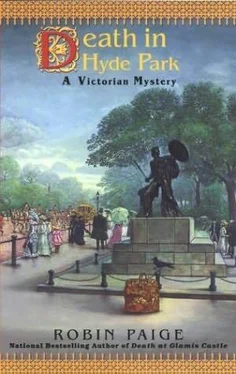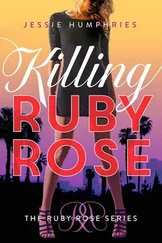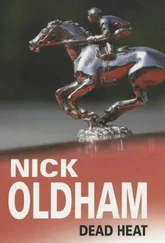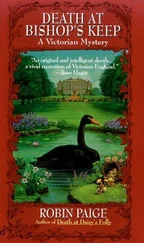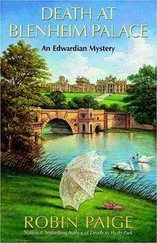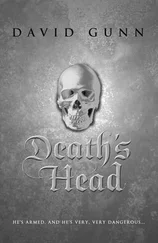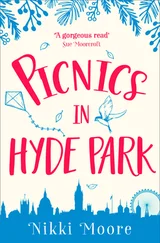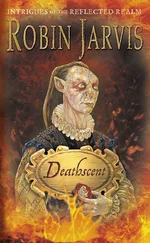Robin Paige - Death in Hyde Park
Здесь есть возможность читать онлайн «Robin Paige - Death in Hyde Park» весь текст электронной книги совершенно бесплатно (целиком полную версию без сокращений). В некоторых случаях можно слушать аудио, скачать через торрент в формате fb2 и присутствует краткое содержание. Жанр: Классический детектив, на английском языке. Описание произведения, (предисловие) а так же отзывы посетителей доступны на портале библиотеки ЛибКат.
- Название:Death in Hyde Park
- Автор:
- Жанр:
- Год:неизвестен
- ISBN:нет данных
- Рейтинг книги:5 / 5. Голосов: 1
-
Избранное:Добавить в избранное
- Отзывы:
-
Ваша оценка:
- 100
- 1
- 2
- 3
- 4
- 5
Death in Hyde Park: краткое содержание, описание и аннотация
Предлагаем к чтению аннотацию, описание, краткое содержание или предисловие (зависит от того, что написал сам автор книги «Death in Hyde Park»). Если вы не нашли необходимую информацию о книге — напишите в комментариях, мы постараемся отыскать её.
Death in Hyde Park — читать онлайн бесплатно полную книгу (весь текст) целиком
Ниже представлен текст книги, разбитый по страницам. Система сохранения места последней прочитанной страницы, позволяет с удобством читать онлайн бесплатно книгу «Death in Hyde Park», без необходимости каждый раз заново искать на чём Вы остановились. Поставьте закладку, и сможете в любой момент перейти на страницу, на которой закончили чтение.
Интервал:
Закладка:
“One of those Rossetti girls. I’ve no idea which one, and anyway, I can never remember their names. They published that wretched little paper, the Torch, they called it.” She made a disgusted noise. “Such silly creatures. I could never see why Emma Goldman found them so interesting. Insipid, in my view. Not a breath of revolutionary spirit in them. It’s not surprising that they have abandoned the movement.”
The Rossetti girls, Kate thought with rising excitement. They were the authors of the manuscript she was reading, A Girl Among the Anarchists. If they were friends of Miss Conway, she just might have tried to make contact with them. “Do you happen to know,” she said, concealing her interest, “where I might find these young women?”
“Oh, one never knows things like that,” Mrs. Conway said carelessly. She fitted another cigarette into the holder and lit it. “Anyway, the Torch was put out some years ago, while the Clarion lives on-such as it is, of course. I will say this for Lottie: The child is persistent. Not a scrap of talent or gift, mind you, and no revolutionary boldness. But doggedly persistent, nonetheless. There’s something in that, I suppose.”
Kate could hardly decide whether she should feel pity for a woman who had so entirely deceived herself, or anger at a mother who had so little respect for her daughter. She rose. “Thank you for your time,” she said through clenched teeth, and turned toward the door.
“But I’m not finished yet!” Mrs. Conway exclaimed, her voice becoming shrill. “I haven’t told you about my publishing plans. I have been in contact with the editors at Duckworth, who have assured me that my memoir-”
“I think you are finished,” Kate said distinctly. “Quite finished.” And with that, she went out the door, closing it behind her as if to make sure that nothing from the room would escape into the outer air.
CHAPTER SEVENTEEN
Now and again it happens that the [Russian] colony misses one or more of its prominent members, perhaps a man and a woman, or two women by themselves. They have disappeared suddenly, leaving no trace behind them. No one makes any enquiries, but these fugitives are not forgotten. Presently a newcomer brings tidings. Elzelina Kralchenskaya is in a Russian prison; Vera Ivanovna is in Siberia; Dmitry Konstantinovitch is dead.
Count E. Armfelt, “Russia in East London,” in Edwardian London, Volume 1, 1902When Charles arrived back at Sibley House, he spoke immediately to Richards, who just managed not to sniff at his lordship’s unconventional request. He murmured a polite, “As your lordship wishes.” Such things had never been asked for in the days of his lordship’s brother and father, but those days were gone forever. So, after some consultation with the male members of the household staff, Richards at last produced a pair of brown trousers with traces of mud on the knees, a dark overcoat, a soft cap, and a knitted scarf, and handed them over with a look of restrained distaste. Charles dressed and combed his hair straight back from his forehead without a parting, in the Slavic manner, turned up the collar of the overcoat, rammed the cap down on his head, and made for Euston Station.
London had for centuries been a vigorously cosmopolitan city, but during the sixty years of Victoria’s reign it had attracted increasingly large numbers of exiles seeking safe harbor from the totalitarian governments of the Continent. Among these London refugee colonies, the largest and fastest-growing were the Russian and Polish, populated by men and women and children who had fled the tyrannies of the Romanov regime. Pursuing as far as they could the crafts and trades they had learned in their native land, living on black rye bread, potatoes, turnips, and onions, they crowded together in tenements along the by-streets and back alleys of East India Dock Road, Commercial Road, and Whitechapel. But while their living conditions might be difficult and luxuries few, these people-many of whom were Jewish-possessed what was to them the greatest luxury of all: the freedom to work and talk and think as they pleased, without being harassed by the authorities.
The difficulty, however, as Charles well knew, was that not all of these people had come to settle down as peaceful, hardworking citizens of their adopted country. Most European governments had already passed severe repressive measures against Anarchists and others who aimed to disturb the social order, but tolerant Britain had taken no such action, and London’s East End had become the safest refuge that the revolutionaries could find, as well as a sheltering haven for the Czarist counterrevolutionaries who aimed to discredit and unmask them. It made for an extraordinarily volatile and confusing situation.
Charles left the Underground at Liverpool Street Station and walked for some distance, past Spitalfields Market and the Ghetto Bank of Whitechapel. The bank was one of the busiest in London, for every Russian refugee managed, through sheer industry and determined economy, to send money to family and friends in Russia and Poland-a million rubles a year, it was said. As Charles walked along Commercial Road, he was struck by the vibrant energy and liveliness of the place: the remarkable variety of Yiddish and Hebrew and Russian dialects spoken on the street; the astonishing range of crafts-cabinetmakers, tailors, boot-makers, seamstresses, milliners, upholsterers, bookbinders, watchmakers, icon painters-represented in the shops along the way; and the fascinating spectrum of restaurants and cafes, serving such exotic delicacies as smoked goose, reindeer tongue, and pickled lampreys, along with the more usual caviar, smoked salmon, strong cheeses, black bread, and vodka. Someone else walking these streets-a Jack London, for instance, looking for the downtrodden and desperate-might see stooped shoulders, weary faces, and forlorn spirits. But Charles caught scraps of song drifting from open doorways and heard the pleasure in the greetings of old babushkas in aprons and shawls as they passed on the streets. These people might not have much, but their spirits were indomitable, their hopes invincible, and their dreams of freedom unconquerable.
The address on the torn scrap of paper in Yuri Messenko’s shirt pocket proved to be that of a library located on the second floor of a small building in Church Lane, a block off Commercial Road. The first floor was occupied by a cigar shop that displayed tins of Russian tobacco and wooden boxes of Russian cigars in its square-paned, fly-specked window, along with hand-colored photographs of chubby-cheeked girls in native Russian costume and stacks of Russian newspapers and books. The entrance to the library was in a little alcove. There was a sign on the door; underneath a Russian inscription, in English, Charles read, “Free Russian Library. Open daily from 11 A.M. to 10 P.M.” The door was plastered with dozens of other notes and notices, also in Russian.
The door gave onto a dark, steep stair. Climbing to the top, Charles opened another door and stepped into a crowded, stuffy room, lit by several hanging gas lamps. The walls were lined with shelves of paperbound books and journals, the air was filled with the distinct perfume of tobacco and sweat and unwashed bodies, and almost every chair at the two long wooden tables was occupied. Some of the men were reading books and newspapers, others were writing, and still others-those who could not write, Charles guessed-appeared to be dictating letters to scribes. The men were of all ages, from beardless students to elders with long gray beards neatly tucked inside their coats, and the muted murmurs of their conversations were sibilant and foreign.
The librarian, or so Charles thought he must be, was seated behind a small wooden table. “Might I help you find something?” he asked, in heavily accented English. He was a very young man with dark, anxious eyes, clean-shaven, and neatly dressed in coat and cravat.
Читать дальшеИнтервал:
Закладка:
Похожие книги на «Death in Hyde Park»
Представляем Вашему вниманию похожие книги на «Death in Hyde Park» списком для выбора. Мы отобрали схожую по названию и смыслу литературу в надежде предоставить читателям больше вариантов отыскать новые, интересные, ещё непрочитанные произведения.
Обсуждение, отзывы о книге «Death in Hyde Park» и просто собственные мнения читателей. Оставьте ваши комментарии, напишите, что Вы думаете о произведении, его смысле или главных героях. Укажите что конкретно понравилось, а что нет, и почему Вы так считаете.
